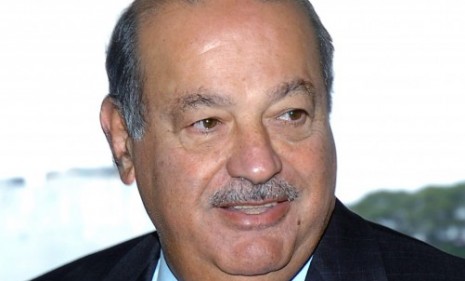7 things to know about Carlos Slim Helu
Forbes has dubbed the baseball-mad Mexican monopolist the 'World's Richest Man.' Here, 7 need-to-know facts about Carlos Slim Helu

A free daily email with the biggest news stories of the day – and the best features from TheWeek.com
You are now subscribed
Your newsletter sign-up was successful
Mexican telecommunications magnate Carlos Slim Helu has catapulted past Bill Gates to become the world's richest person, according to Forbes magazine. But most Americans still know relatively little about this private man with a $54 billion fortune. Following are 7 must-know facts about Carlos Slim:
1. He's the first 'World's Richest' man from a developing nation
2009 was good to the super-rich in poorer nations: Brazil and Russia each doubled their billionaire counts; and China's new total (64 billionaires) ranks second only to the America. Slim, as an owner of more than 220 companies in telecommunications, banking, railways, and restaurants (to name a few), saw his fortune swell by $18.5 billion last year.
The Week
Escape your echo chamber. Get the facts behind the news, plus analysis from multiple perspectives.

Sign up for The Week's Free Newsletters
From our morning news briefing to a weekly Good News Newsletter, get the best of The Week delivered directly to your inbox.
From our morning news briefing to a weekly Good News Newsletter, get the best of The Week delivered directly to your inbox.
2. In Mexico, Slim is "Mr. Monopoly"
The Wall Street Journal once quipped that "it's hard to spend a day in Mexico and not put money in [Slim's] pocket." You can barely make a call without doing so: Slim's phone company Telmex — snapped up on the cheap in 1990 — controls 80 percent of the landlines; its subsidiary América Móbil handles 70 percent of the cell service.
3. He bailed out The New York Times
In addition to owning 6.9 percent of The New York Times Company, Slim loaned the struggling publisher $250 million last year, essentially saving it from financial ruin. Recently, rumors that Slim might buy a controlling stock in the company caused its shares to jump. Slim, however, denies the stories.
A free daily email with the biggest news stories of the day – and the best features from TheWeek.com
4. He loves baseball
While soccer remains Mexico's most popular sport, Slim has an avid affinity for baseball — especially the New York Yankees. In 1998, he penned an article for a Mexico City magazine about obscure historical baseball figures. And he once agreed to a USA Today interview under the condition that the journalist pass along Slim's suggestion for "improving" the newspaper's box scores to his editor.
5. In the U.S., he'd be a "trillionaire"
Carlos Slim's net worth is equivalent to about 7 percent of Mexico's GDP. For Bill Gates to have the same grip on the U.S. economy, says Brian Winter in Foreign Policy, he would have to be worth "909 billion" and own "Alcoa, Phillip Morris, Sears, Best Buy, TGIFriday's, Dunkin' Donuts, Marriott, Citibank, and JetBlue."
6. He's from a Lebanese family
Julian Slim Haddad, Carlos's father, immigrated to Mexico from Lebanon in 1902 to escape military conscription. He eventually created highly successful import and real estate businesses worth millions. The family of Carlos' mother, also from Lebanon, settled in Mexico City at the end of the 19th century.
7. He's famously frugal
From a young age, Slim has practiced legedary financial restraint. He still lives in the same modest 6-bedroom home where he's resided for the past three decades. His cramped bedroom is "the size of a Manhattan hotel room." And, despite the prevalence of kidnappings in Mexico, Carlos Slim still drives himself to work.
Sources: Foreign Policy, Telegraph, Wall Street Journal, CS Monitor, Forbes, CNN